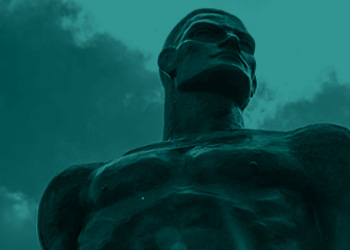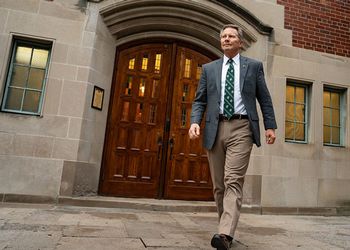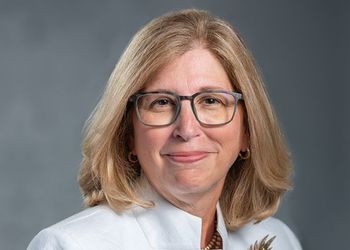TIM HUNT: CARING FOR—AND LEARNING FROM—ANIMALS

Dr. Tim Hunt got his first sled dogs 20 years ago, as four-legged payments made in lieu of cash.
After opening his veterinary clinic in Marquette, in the Upper Peninsula, he’d taken on a few mushers as clients. Dogsled drivers would have a lot of dogs, right? What Hunt didn’t know: “They had no money.”
From those early days, Hunt’s career has taken off. His Bayshore Veterinary Hospital treats 15,000 small-animal clients. In 2014, he won the America’s Favorite Veterinarian contest run by the American Veterinary Medical Foundation, nominated by a client after performing a Christmas-morning C-section on her mother’s dog.
But Hunt, too, has taken off. Those first few bartered-for huskies—experienced dogs that helped him learn to mush and produced puppies to fill out his kennel—sparked his love for a sport that’s since pulled Hunt across remote expanses and mountainous terrain.
Hunt ran his second Iditarod in March, placing 45th out of 79 teams. The trail had been moved for a lack of snow. Then Alaska delivered temperatures as cold as minus 60 degrees. Still, Hunt improved his standing over his previous attempt. In 2009 he finished last.
A veteran of more than 100 dogsled races in North America and Europe, Hunt said the 1,000-mile, two-week Iditarod is his favorite. Pitting drivers and dogs against frozen rivers and desolate tundra, the race’s long distance imposes a solitude he relishes.
“It’s just me and the dogs,” he said. “You’re just away from everything. It’s kind of like taking a dresser and turning it upside down and opening the drawers, and everything dumps out. And when you’re done with it you have an empty dresser.
“That’s your brain. And everything’s fresh. It’s really neat. It’s also extremely hard.”
Hunt grew up an animal lover, caring for gerbils, guinea pigs and cats in his family’s home in Westland, in southeast Michigan, and taking a job as a “kennel boy” at 14. He headed to MSU as an undergraduate and stayed for vet school.
These days, he cares for animals even on the road. Or trail.
As an Iditarod vet, he’s set up at outposts to check huskies’ vital signs, joints and muscles during the race. He also helped to start the Alaska Veterinary Rural Program, which serves rural communities in western Alaska. Villagers have resorted to shooting dogs that roam in oversize packs, Hunt said. To help control the population more humanely, he and other volunteers set up anesthesia equipment and surgical instruments in laundry facilities and police stations to offer free spay-and-neuter clinics.
The 20 or 30 dogs that volunteers sterilize in each community may be a “drop in the bucket,” he said, “but it’s a start.”?



